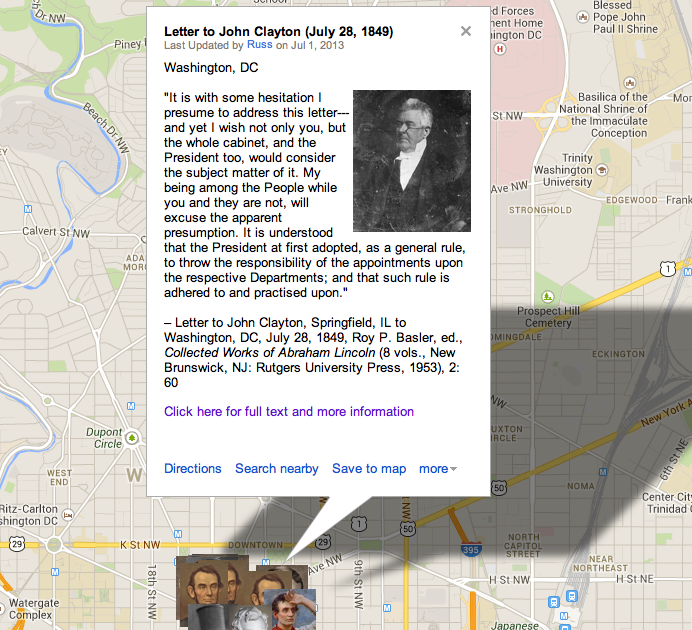Ranking
#130 on the list of 150 Most Teachable Lincoln Documents
Annotated Transcript
On This Date
HD Daily Report, July 28, 1849
The Lincoln Log, July 28, 1849
Custom Map
How Historians Interpret
“In that hectic time, Lincoln followed the advice he had offered twelve years earlier when he suggested that the newly-installed president, Zachary Taylor, should announce: “by the Eternal, I take the responsibility.”
–Michael Burlingame, Abraham Lincoln: A Life (2 volumes, originally published by Johns Hopkins University Press, 2008) Unedited Manuscript by Chapter, Lincoln Studies Center, Volume 2, Chapter 23 (PDF), 2411.
“Lincoln had every right to feel proud of his efforts which — in his mind — helped to win the presidency for the Whig party. Moreover, with the Whigs in control of the executive branch of the federal government, political patronage posts were available in greater abundance. Even before Taylor’s inauguration, aspiring office seekers assailed Lincoln with requests for public jobs. These requests ranged from postmaster to that of charge d’affaire. The young congressman, who was nearing the end of his only term in the United States House of Representatives, diligently forwarded all applications to the appropriate department head, exerting great efforts to secure patronage jobs for his constituents and for Illinois Whigs generally.”
–Thomas F. Schwartz, “’An Egregious Political Blunder’ Justin Butterfield, Lincoln, and Illinois Whiggery,” Journal of the Abraham Lincoln Association 8, no. 1 (1986): 9-19.
NOTE TO READERS
This page is under construction and will be developed further by students in the new “Understanding Lincoln” online course sponsored by the House Divided Project at Dickinson College and the Gilder Lehrman Institute of American History. To find out more about the course and to see some of our videotaped class sessions, including virtual field trips to Ford’s Theatre and Gettysburg, please visit our Livestream page at http://new.livestream.com/gilderlehrman/lincoln

